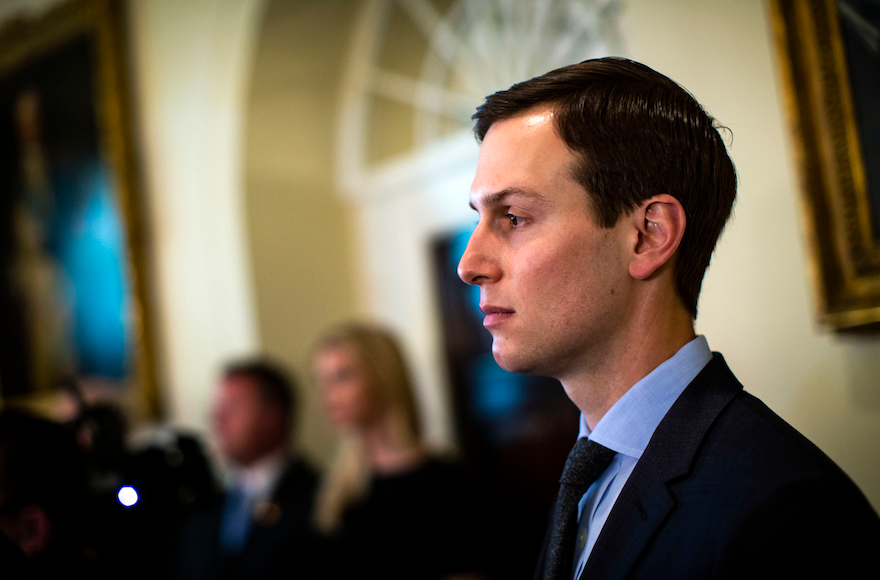Jared Kusher lacks highest security clearance level at White House
Published July 15, 2018

Jared Kushner during a Cabinet meeting in the White House in Washington, D.C., May 9, 2018. (Al Drago-Pool/Getty Images)
(JTA) — Jared Kushner, President Donald Trump’s son-in-law and a top White House adviser, lacks the highest level of security clearance.
Kushner received a permanent “top secret” security clearance in late May, which does not allow him to review some of the government’s most sensitive secrets, the Washington Post reported Friday, citing two people familiar with his access.
Kushner has not been approved to review “sensitive compartmented information,” known as SCI, which primarily involves U.S. intelligence sources and surveillance methods, according to the newspaper.
Because of this, Kushner has been prevented from seeing some parts of the President’s Daily Brief, a highly classified summary of world events that sometimes describes intelligence programs and operatives, the Post reported.
Kushner attorney Abbe Lowell would not confirm Kushner’s current clearance level to the Washington Post. He said that the White House handled Kushner’s security clearance according to the standard process and that Kushner has sufficient access to do his job.
“After a review done in the normal course by career officials, Mr. Kushner was given his permanent White House clearances in May, and has access to all the materials and information he needs to do the domestic and international work the president has asked him to do,” Lowell said.
In February, Kushner’s clearance was downgraded from top secret to secret following a temporary clearance. The reason for the downgrade was not clear but reports at the time mentioned the fact that his family real estate business is in debt and his widespread global investments would make a businessman like him vulnerable to foreign influence.
Kushner, who is an Orthodox Jew and is married to Trump’s daughter Ivanka, advises the president on issues including the Middle East.
Middle East peace negotiators have traditionally had top-secret clearance, considered critical in understanding the myriad pressures facing the parties as they consider talks.














